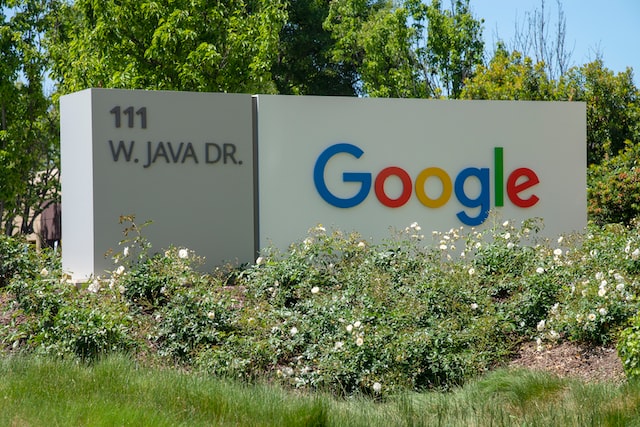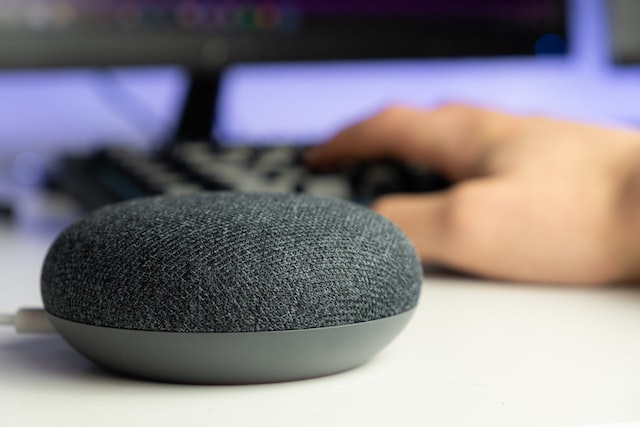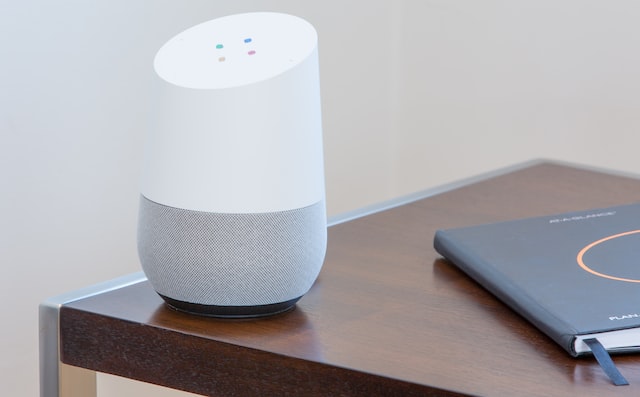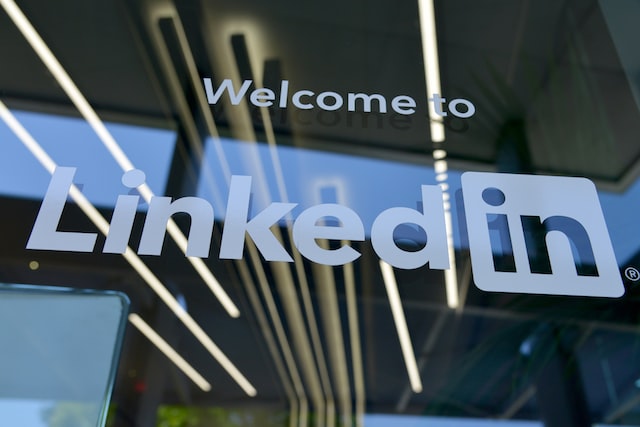Artificial Intelligence is one of those fundamental technologies that every big tech company is using to advance their products. These companies have invested billions of dollars in AI, a sign that this technology is critical to their future. Research labs at these companies are exploring ways to utilize the different AI capabilities, including image recognition, natural language processing, computer vision, and more.

The heavy investment in AI is evident in most of the products these companies have released in the last couple of years. In today’s article, we will share how big tech companies are using AI to make an impact. The companies we will look at in this article include Google, Meta (former Facebook), Apple, Amazon, and Microsoft. Here is how these companies are using AI in their various products/platforms.
1. Alphabet (Google)

Alphabet is the parent company of Google, and several other companies, including Nest, Fitbit, Locker, Waze, DoubleClick, Waymo, Mandiant and more. We all know Google as the world’s most popular search engine, with a market share of over 90%. Google’s dominance as the most popular has been mainly due to its massive R&D budget to advance technologies such as AI.

Google spent over $31 Billion on Research and Development in 2021, up from $27 billion in 2020. Although Google doesn’t offer full details of its R&D spending, it is believed that a significant percentage of its research budget goes to AI. Some of the products/platforms that show evidence of Alphabet’s massive investment in AI include the following.
Google’s ever-improving search engine

Google is the most dominant search engine for a good reason. People love it because it gives them the most relevant search result. Google uses sophisticated machine learning algorithms to rank search results in the most appropriate way possible. Their search capabilities have been migrated to most of their other products, including YouTube, Google Maps, and more.
Self-driving cars
Many may not know that Alphabet is one of the major players in the race to make the first fully-autonomous vehicle. The company started investing in self-driving technology back in 2009 with the Waymo project. Waymo is now an independent company that is part of Alphabet. The company (Waymo) already has some self-driving taxis on the road in the East Valley of Phoenix, Arizona, including Chandler, Gilbert, Mesa and Tempe.

Self-driving technology involves using numerous sensors, cameras, and artificial intelligence capabilities, including machine learning and computer vision to enable the car to move on the road and maneuver through obstacles. Several automotive companies are all trying to solve this complex technological problem, and Waymo is part of them.
Google Pixel’s image processing

Google’s other implementations of AI are visible in their Pixel phones and Android. We all know Google doesn’t use the best camera hardware in its Pixel phones despite having one of the best smartphone cameras on the market. Google uses advanced image processing to make the images from Pixels look good and natural. Their image processing algorithms learn from millions of images to determine the best way a photo should look depending on the shooting environment.
Google Assistant

Google Assistant is the most popular voice assistant, thanks to Android’s popularity. It is also popular because it is simply the best and most reliable voice assistant. It uses Google’s advanced natural language processing to turn voice commands in over 40 languages into instructions that can be executed by your smartphone or smart home devices.

Unlike Siri, Google Assistant works on both Android and iOS, another reason for its popularity. It can also recognize up to 6 different voices, making it ideal for controlling smart homes with more than one person. Google Assistant’s accuracy is also due to Google’s massive amounts of data they have collected over the years.
2. Amazon

Some consider Amazon as a retail/eCommerce company. However, Amazon went from being just a retail company several years ago. The company now has several divisions that are purely into technology and have nothing to do with retail. Amazon’s divisions such as AWS, are already generating tens of billions of dollars for the company.
AWS or Amazon Web Services is a cloud computing platform that allows individuals and companies to run software or store data on their servers. Amazon spent over $42 billion in R&D back in 2020. A considerable amount of this budget went into its cloud computing platform and AI. Let’s look at some of Amazon’s returns from its AI investment.
Sophisticated eCommerce platform

Amazon is still the leading player in eCommerce. The company has close to 350 million products on its website. When you visit the site a couple of times, you will start seeing products recommendation that mainly depends on the previous products you’ve bought or searched for.

The search results on Amazon are also ranked based on the data Amazon has about you. All this work is done by their advanced machine learning algorithms. The company has also invested in its Prime Air delivery service, which will use drones to deliver products to customers within 30 mins. These drones will use AI and maps to navigate to the right location of the customer.
Amazon smart home ecosystem

Amazon is also the leading player as far as smart home technology is concerned. The company has heavily invested in its smart home technology, so they deserve to be the leader in this sector. Their affordable smart speakers and advanced voice assistant (Alexa) are some of the reasons most people prefer their smart home ecosystem.

Alexa uses natural language processing to turn your voice commands into instructions that any of your smart home devices use to take action. It is also supported by several other smart home devices, including heating systems, cooking devices, smoke alarms, smart TVs, and more.

Their smart home ecosystem also consists of Ring devices that focus more on your home’s security. Some of these devices include the Ring Camera with motion sensors, Ring video doorbell, and more. All these devices use AI to execute most of their critical functions.
3. Apple
Apple is the most valuable company in the world, with an estimated market value of over $2.7 Trillion. The company’s flagship product is the iPhone which generates almost 50% of the company’s revenue. The iPhone and several other products and services have been significantly improved in the last couple of years, thanks to Apple’s investments in AI.
Apple bought the most (more than 25) AI companies between 2016 and 2021. Such moves clearly show the company’s commitment to artificial intelligence. To understand how Apple has been utilizing AI, these are some of their products/platforms that have several AI capabilities.
The iPhone and Siri

Ever since its first launch in 2007, the iPhone has been receiving annual updates with the goal of making it more functional and better than the competition. A number of these updates have been in its software. Many of these software improvements have been possible thanks to the company’s advancements in AI.

Some of the popular iPhone features that have been made possible by AI include live texts (allows copying texts from images and videos), live captions in videos, Siri dictation, sound recognition, Face ID, handwashing recognition, and more. The iPhone also uses Siri as its default voice assistant. Siri is a reliable voice assistant, especially for on-device commands such as setting reminders, alarms, and smart home device commands.
iPad and Mac

It should also be noted that most of the software features, including Siri on the iPhone, are also available for the Mac and iPad. Handwriting detection is another AI feature that is exclusive to the iPad. Most Apple products, including iPads and MacBooks, also use optimized charging that learns about your charging behavior, so it will only charge the battery to 100% when needed.

The Apple Watch

Apple is also the dominant player in the smartwatch market, with a market share of over 36.1%. People love Apple watches because of their smart capabilities, including sleep tracking, fitness tracking, sound recognition, hand washing detection and more. All these features have been made possible thanks to Apple’s investment in AI technologies.

Services
Besides the hardware products, Apple uses its AI capabilities in its service platforms, including iCloud+, Apple Music, Apple TV, and the App Store. These platforms use advanced ranking and recognition algorithms to help users find the most appropriate content. For instance, Apple Music can learn about your listening habits to suggest playlists with songs you will likely love to listen to.

Similar algorithms are used to recommend content on the other Apple platforms, including Apple TV+ and the App Store.
4. Meta (former Facebook)

Meta is another tech company that is investing billions in AI and other related research projects. The company is now prioritizing the building of the metaverse, which they believe will change the way we use the internet. Meta is expected to spend over $29.34 Billion in 2022, with a significant percentage of this amount going to AI, servers, and data. Let’s look at some of the products/platforms that have benefited from Meta’s AI investments.

Facebook and Instagram are two of the world’s most popular social media platforms. These platforms primarily rely on machine learning algorithms to sort the huge amounts of data they have about their users. The ranking algorithms are responsible for ranking content users see in their feed.
Meta’s advanced ranking algorithms are the reason people use their platforms for hours every day. The company also uses AI in its Ads placement. Facebook and Instagram will show you ads based on your interests and the information they have about you.
Meta Quest (VR headset)

The Meta Quest (former Oculus Quest) headsets are the most popular VR/AR headsets in the market right now. These headsets have AI capabilities such as motion tracking, face tracking and more. The next generation of these headsets will be very crucial to Meta’s metaverse ambitions.
5. Microsoft

Microsoft is the company behind Windows, the most popular desktop Operating system. However, it has a series of other hardware and software products that have all been impacted by the company’s advancements in AI. Microsoft invested over $1 Billion in OpenAI in 2019. The two had formed a multi-year partnership to develop artificial intelligence supercomputing technologies on Microsoft’s Azure cloud computing service.

Here are some of the products/platforms that have gained from the company’s AI investments
Microsoft Azure

Azure is the second most popular cloud computing platform behind AWS. The platform offers several AI services, including high-quality vision, speech, language, and decision-making AI models that developers can access through simple API calls.
Microsoft 365 and Power BI.

Microsoft 365 has several cloud-based applications, including a full office package. Most of the tools have AI capabilities aimed at improving the experience of the users. Power BI is another powerful platform that enables anyone to build business applications without coding. This app is part of the Power platform that includes several other useful tools that you can use to automate tasks.

Microsoft also owns LinkedIn, one of the most popular social networking sites. Like other social media sites, LinkedIn uses AI and machine learning to rank content in its user’s feeds. AI is also used in ad placement to ensure advertisers on the platform reach the right audience.
Windows

Windows also has a couple of built-in AI capabilities geared toward improving the user experience of the OS. It comes with Cortana, Microsoft’s voice assistant that users can use to do certain tasks using voice commands. Windows 11 will also learn about your PC usage behavior to suggest apps on the home menu.
Final thoughts
Besides the five we have shared, several other big tech companies, including Nvidia, Intel, AMD, IBM, Samsung, and Tesla, are investing a lot of recourses in AI. These big tech companies consider AI as a fundamental technology that makes their products more functional and much easier to use.



